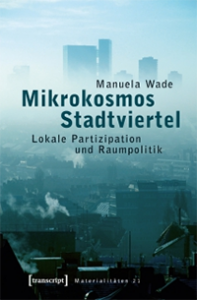How can discriminatory treatment along perceived ethnic lines become reproduced within a discursive climate that claims to support ethnic diversity and condemn racism? Through an analysis of interviews with 21 current and former employees of the Swedish Police who identified their background as ‘foreign’, this article investigates how certain language use and specific talk can be reproduced in spite of the internal and external criticism directed at them. Six different, institutionally available accounts resorted to by the interviewees to make sense of and legitimise the derogatory language and joking they encountered at work are examined, shedding light on how the use of derogatory language, slurs, and degrading humour about ethnic minorities can remain commonplace within the police force without becoming considered as especially problematic. In addition, the analysis shows that which takes place within the police’s own ‘Tin Bubble’, or in the police car, canteen, and lunchroom, to potentially have a carryover effect from one context to the other, colouring police interactions with the public and adversely affecting the workplace satisfaction of police employees coming from minority backgrounds. Source: Sara Uhnoo, Within ‘the Tin Bubble’: the police and ethnic minorities in Sweden, Policing and Society: An International Journal of Research and Policy, 2015, 25:2, 129-149, DOI:10.1080/10439463.2013.817995
Alle Artikel von Detlef.Dackel
Effectiveness of Mandatory Enrollment in Prescription Drug Monitoring Programs (PDMPs)
Such programs play a vital role in reducing and preventing prescription drug abuse and drug overdose. PDMPs collect data from pharmacies on dispensed controlled substance prescriptions and make it available to authorized users. PDMPs are essential prevention tools to reduce the prevalence of drug addiction and its negative consequences. A full copy of the evaluation can be found at http://www.chfs.ky.gov/NR/rdonlyres/8D6EBE65-D16A-448E-80FF-30BED11EBDEA/0/KentuckyHB1ImpactStudyReport03262015.pdf
Hafturlaub aus kriminologischer Perspektive
Eine Beitragsreihe in der Schweizerischen Zeitschrift für Kriminologie (SZK) untersucht Ausgestaltung und Auswirkungen von Ausgang und Hafturlaub in Belgien, Deutschland, Frankreich, Luxemburg, der Schweiz und Kanada. Dabei werden die Wirkungen des Hafturlaubes für die weitere Haft und die spätere Resozialisierung vor dem Hintergrund unterschiedlicher rechtlicher Ausgestaltungen vergleichend in den Blick genommen. Quelle: Daniel Fink / Benjamin Mine: „Sorties et congés comme facteurs protecteurs contre la récidive”. In: SZK 1, 15, S. 3-5. Weitere themenbezogene Aufsätze S. 6-52.
Deutsche Kriminalpolitik und Populismus
Ein Beitrag der Zeitschrift Kriminologisches Journal stellt eine Untersuchung vor, in der die deutsche Kriminalpolitik auf populistische Motive überprüft wurde. Ähnliche Untersuchungen wurden bereits in anderen Ländern durchgeführt. Ziel der vorgestellten Studie war es deshalb, die Besonderheiten der deutschen Kriminalpolitik empirisch zu ermitteln. Hierzu wurden exemplarisch die kriminalpolitischen Kampagnen der Politiker Gerhard Schröder, Roland Koch und Ronald Schill und die sich darauf beziehende politische Kommunikation ausgewertet. Quelle: Bern Dollinger / Dirk Lampe / Matthias Rudolph / Henning Schmidt-Semisch: „Ist die deutsche Kriminalpolitik populistisch? Eine konzeptionelle und empirische Annäherung“. In: KrimJ 1, 15, S. 3-21.
Manuela Wade – Mikrokosmos Stadtviertel. Lokale Partizipation und Raumpolitik
327)
Wade, Manuela; Mikrokosmos Stadtviertel. Lokale Partizipation und Raumpolitik; Transcript Materialien 21,Bielefeld 2015, ISBN 978-3-8376-2888-3, 216 S., 27,99 Euro
Seit der „Chicago School“ und der Studie von Park u.a. („The City“, 1925) weiß auch die Kriminologie um die Bedeutung von Stadtteilen[1]. Raum, Umwelt und Wohnbedingungen haben größeren Einfluss auf abweichendes Verhalten als individuelle, persönliche Faktoren. Kriminalität „haftet“ an Stadtvierteln – eine Erkenntnis, die sich auch die aktuellen Studien zu „Predictive Policing“ nutzbar machen. Continue reading Manuela Wade – Mikrokosmos Stadtviertel. Lokale Partizipation und Raumpolitik
